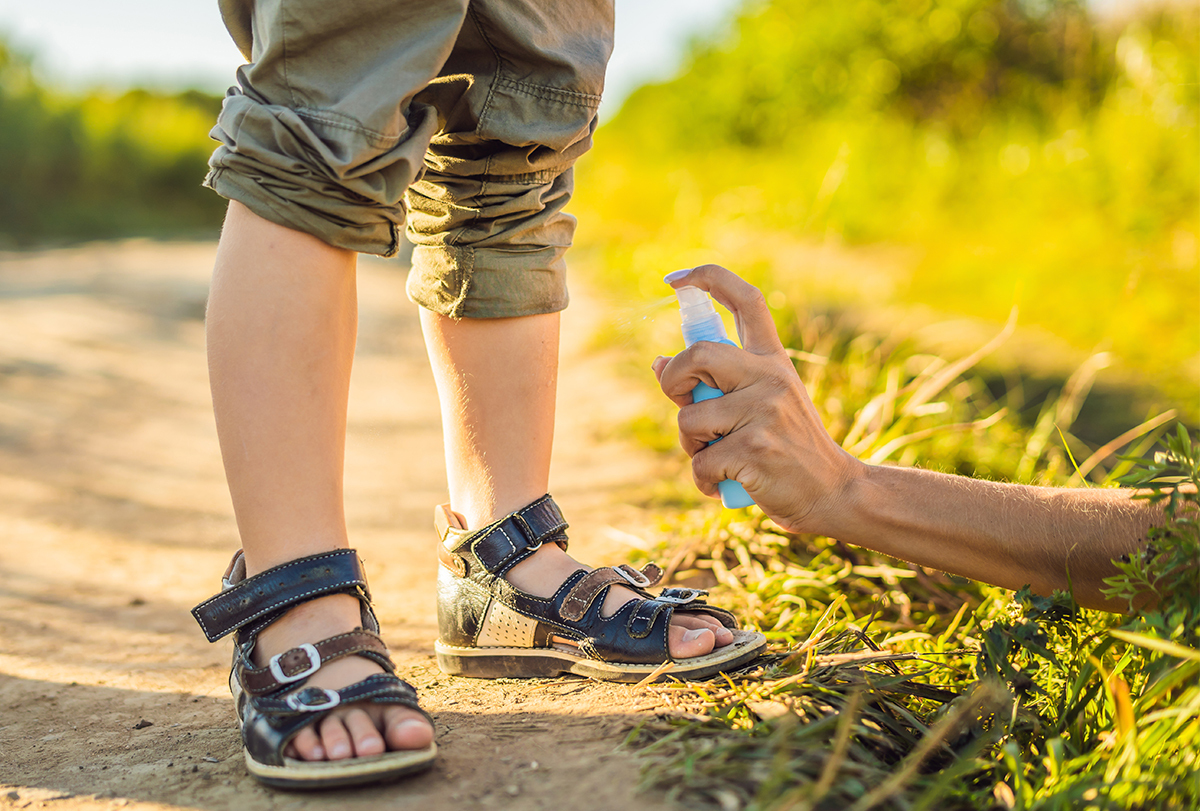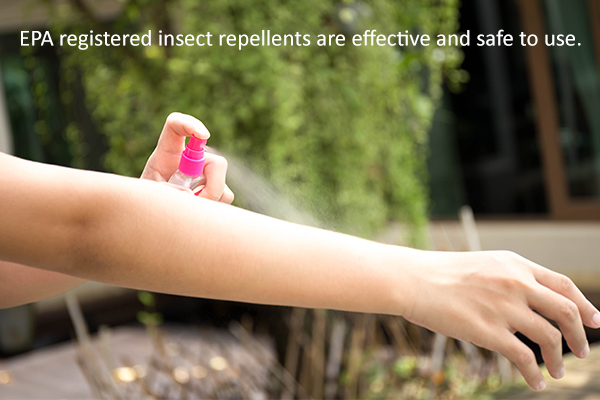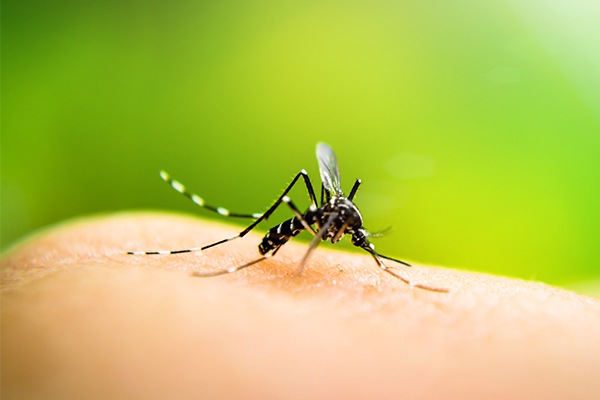In this article:
Various remedies can be used to relieve the inflammation and itching associated with mosquito bites. However, it is best to take preventive measures against mosquito bites to avoid any mosquito-borne illnesses and local skin reactions.

Home Treatment for Mosquito Bites
The following products can help soothe the itching and swelling caused by mosquito bites:
1. Apply essential oils
Herbs and essential oils can help subside the itching to some extent, depending on the person and species of mosquito.

- Lemon, citronella, and eucalyptus essential oils are registered and approved by the Environmental Protection Agency (EPA) as topical mosquito repellents for human use. (1)
- A study showed that clove essential oil mixed with coconut oil or olive oil has repellent activity against Aedes aegypti mosquito for up to 96 and 76.5 minutes, respectively. (2)
- Lavender essential oil exhibits anti-inflammatory effects that can help improve mosquito bites. (3)
How to use: Dip a cotton ball in the essential oil and dab on the affected area
2. Use ice packs
The use of ice packs numbs the skin, giving temporary relief from inflammation and irritation. However, avoid applying ice directly to the skin for more than 5 minutes to prevent damage.
3. Wash with soap and water
Washing the affected area with soap and water helps remove irritants from the bite and prevents infections.
4. Try hot spoon remedy
Anecdotally observed, applying a mildly hot spoon on the mosquito bite is seen to help subside the itching for some time. However, ensure that the spoon is not too hot as to cause a burn.
How to use: Dip the spoon in hot water for a few seconds and gently place it on the bite.
5. Apply witch hazel
Witch hazel possesses antibacterial and astringent properties and its topical application can subside the inflammation. (4) Moreover, it can have a soothing effect on the burning or irritating sensation and also aids in healing.
How to use: Pour a few drops of witch hazel on a cotton ball and dab or swipe over the bite.
6. Try coconut oil
Coconut oil has anti-inflammatory effects and also enhances the skin barrier which protects the skin from UV radiations. (5)
How to use: Apply a small amount of coconut oil over the affected area with the help of a cotton ball.
7. Try applying garlic
While the oral use of garlic is known to help boost the immune system and improve cutaneous circulation, it has also been used in dermatology for long. The topical application can help subside the inflammation. (6)(7)
How to use: Peel and cut a few cloves of garlic and apply on the affected area.
Note: If garlic application causes irritation or discomfort, avoid its use.
8. Apply honey
Honey has anti-inflammatory and antibacterial properties that can help improve the symptoms of mosquito bites.
How to use: Apply a drop of honey over the itchy mosquito bite.
9. Use aloe vera gel
The anti-inflammatory and antibacterial properties of aloe vera gel can help subside the pain, inflammation, and itching associated with mosquito bites.
How to use: Apply aloe vera gel on the affected area gently.
10. Use baking soda
Mix baking soda in a bit of water to form a paste and apply on the bite. Discontinue use if you experience any irritation.
Preventing Mosquito Bites

Mosquito bites can be prevented through various lifestyle changes and measures, including:
1. Use of insect repellents
EPA-registered insect repellents are effective and safe to use. These repellents commonly contain one of the following ingredients:
- Diethyltoluamide (DEET)
- Picaridin
- Lemon or eucalyptus essential oil (10% concentration in products can protect against mosquitoes for up to 2 hours) (8)
- IR3535
- Para-menthane-3,8-diol
Picaridin 20% and DEET 20% are found to be useful as mosquito repellents and work better than picaridin 10%. (9) Since various compounds are present in different OTC products, it is advised to follow the instructions on the label for use.
2. Wearing full clothes
It is best to avoid going out in the active periods of mosquitoes, namely, dusk and dawn. However, if you need to go out, wear shoes, socks, long-sleeved shirts, and full pants.
Tuck in the clothes properly to avoid the entry of mosquitoes. Additionally, wear light-colored clothes.
3. Using bed nets
Bed nets are essential when sleeping outside. Choose bed nets that have been treated with a pyrethroid insecticide. Tuck the bed nets below the mattress for effective protection.
Bed nets may also be used indoors if you are not able to prevent mosquitoes from entering your home.
4. Preventing mosquito breeding
Do not allow water to collect anywhere in your house. Standing water, often found in gutters, flowerpots, buckets, pet dishes, pool covers, discarded tires, or birdbaths, is a breeding ground for mosquitoes.
5. Planning your travel
It is vital to have information about insects in the areas you chose to travel to.
- Avoid planning trips to areas with a high incidence of mosquito-borne illnesses such as malaria or Zika, especially if you are prone to complications from such diseases, such as you are pregnant.
- Select hotels that have air conditioning and screens on doors and windows.
- Carry a bed net and an insect repellent with you.
- Since mosquitoes can bite through thin clothing, pre-treat your clothes with permethrin or other EPA-registered insecticides.
Why Do Some People Get Bitten by Mosquitoes More Than Others?

Mosquitoes are attracted to the volatile fatty acids emitted by the body. These fatty acids differ between men and women and even according to the foods you have consumed.
Therefore, the difference in the volatile fatty acids given out by every person’s body makes mosquitoes attracted to one more than another.
Final Word
It is essential to prevent yourself from mosquito bites to decrease the number of adult mosquitoes and to further avoid mosquito-borne illnesses in people and animals. Doing so also helps lower the number of mosquito bites to a tolerable level.

- Was this article helpful?
- YES, THANKS!NOT REALLY


